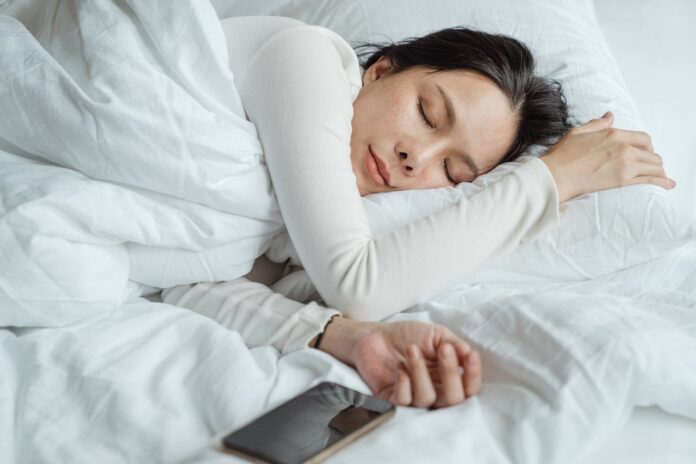With extreme heat waves sweeping across Europe, it is no surprise that many are struggling to do anything productive, never mind get a good night’s sleep.
Quality of sleep is a frequently discussed health issue and research suggests that those who regularly sleep less than seven hours a night are at a higher risk of shortening their lifespan.
Interested in discovering sleep quality around Europe, experts at Forbes Advisor have analysed online search data to discover each country’s amount of sleep related online searches.
These search amounts were then weighted against the number of internet users in each individual country, creating an Insomnia score out of 100, to further establish the European country that gets the best night’s sleep.
We really hope you find this press release useful. If you do end up using it, we would very much appreciate a link to https://www.forbes.com/uk/advisor/life-insurance, which commissioned the data. A linked credit allows us to keep providing you with future content that you may find useful.
The countries that have the best night’s sleep
| Rank | Country | Monthly searches per 100,000 internet users | Insomnia score (/100) |
| 1. | Turkey | 5.7 | 3 |
| 2. | Belgium | 20.6 | 6 |
| 3. | Norway | 21.4 | 10 |
| 4. | Greece | 22.0 | 13 |
| 5. | Switzerland | 27.4 | 16 |
To view the full dataset for each country please click here.
United Kingdom ranks 13th
With an overall Insomnia score of 43 out of 100, the UK ranks 13th. There are 29,000 searches every month from Brits seeking answers for how to sleep better at night.
Turkey is the best country for a good night’s sleep
Forbes Advisor can reveal that Turkey is the country that gets the best night’s sleep, boasting a low Insomnia score of just 3 out of 100.
This is due to there being, on average, only 4,040 sleep related searches in a country with just short of 70 million people who actively use the internet.
Just falling short of the top spot is Belgium, ranking in second, with an Insomnia score of 6/100.
In third place, Norway has an Insomnia score of just 10 out of 100 – That’s equivalent to only 1,100 searches in a country with over 5 million people surfing the internet.
Greece, ranked fourth, is not far behind with a score of 13/100 from Greeks online searches trying to find ways to improve their sleep.
Completing the top five is Switzerland, with just shy of 8 million people actively using the internet, there are just over 2,000 users seeking ways to sleep better, giving the country an Insomnia score of 16 out of 100.
Forbes Advisor’s expert tips to improve sleep quality
1. Get plenty of sunlight during the day
A good night’s sleep begins during the day!
Making sure that you are exposed to natural sunlight during daylight hours will help your body’s internal clock or ‘circadian rhythm’ to regulate. If you haven’t been awake for long enough your body will not be ready for sleep.
2. Change bedroom lighting
To allow your room to become an environment more conducive to sleeping, try reducing artificial light before bed. The darker the room the better.
Artificial lighting can trick your brain into believing it’s daytime and so it will be harder to fall asleep. Reducing screen time or even just limiting screen time will have a positive effect. You could also reduce bedroom lighting to softer lamp lights leading up to the time you wish to sleep.
3. Create a stress-free night-time routine
After an exhausting day, having a relaxing night time routine is important.
Try your hand at a relaxing activity rather than watching TV or scrolling through your phone before bed, this can help your mood and prepare your body better for sleep. These activities can include listening to relaxing music, meditation, reading, or even taking a warm bath. Even better if you can start this routine at the same time each night!
4. Adjust your room temperature
Your core body temperature should be 37 degrees celsius and is maintained by your circadian rhythm. Your temperature will fluctuate slightly during the night and will reduce just before bed to indicate it is time to sleep.
To aid this transition, you can aim to reduce the temperature of your bedroom. You can sleep with the windows open, use netted curtains to keep in the cool air, or leave the fan running to help circulate air in hotter weather.
5. Make your bed a sleeping sanctuary
If you tend to use your bed during the day to watch films, scroll through your phone or even to sit and work, then your brain will begin to associate the environment with those daytime tasks.
So if your work day is stressful then it will carry over into the hours where you actively try to sleep. Save your bed for sleeping! By establishing a clear boundary between these you will find your ability to sleep well will improve.
6. Limit caffeine and sugar in your diet
Reducing your intake of caffeine and sugar filled products during the evening will increase your chances of a peaceful and undisrupted night’s sleep.
Caffeine blocks sleep receptors in your brain and so works against your body as it tries to wind down for sleep. Sugar on the other hand, provides a spike of energy, and what goes up must come down! The following sugar crash wreaks havoc with your internal body clock.
Sleep myths – busted!
Myth: Don’t drink hot tea before bed
Drinking a hot beverage before bed, especially on a hot day, seems like madness. However, by raising your core temperature you then induce sweating which effectively lowers your overall temperature. Remember the circadian rhythm? The lowering of your base body temperature before bed aids your body’s journey to sleep. Although some teas may contain caffeine, they also contain other nutrients and relaxing agents as well.
Myth: Sleeping naked helps to keep you cool
Sleeping with or without clothes is a personal preference. However, during warmer weather sleeping naked can be detrimental to keeping cool. When you sweat during the night it remains on your skin. It is recommended you wear light bedtime clothing to allow the sweat to be absorbed. As your basal body temperature dips, it will help to regulate your body temperature and ultimately keep you cool.
Myth: Eating cheese gives you nightmares
This is a common myth that has no scientific basis. Cheese contains calcium and tryptophan, which aids the body’s production of melatonin, the hormone we all need to induce sleep. So it actually is a good snack to have before bed.
Myth: Drinking alcohol before bed helps you sleep
Many use alcohol as a sleep aid due to its sedative effects. However, alcohol can severely impact your health and mood when drunk in excess; but most importantly it can affect the quality of your sleep.
Those who regularly partake in alcohol before bed may find that they fall asleep faster but that it induces a disrupted sleep and reduces REM sleep – the stage of sleep that helps your brain process the day.
Help keep news FREE for our readers
Supporting your local community newspaper/online news outlet is crucial now more than ever. If you believe in independent journalism, then consider making a valuable contribution by making a one-time or monthly donation. We operate in rural areas where providing unbiased news can be challenging. Read More About Supporting The West Wales Chronicle
























